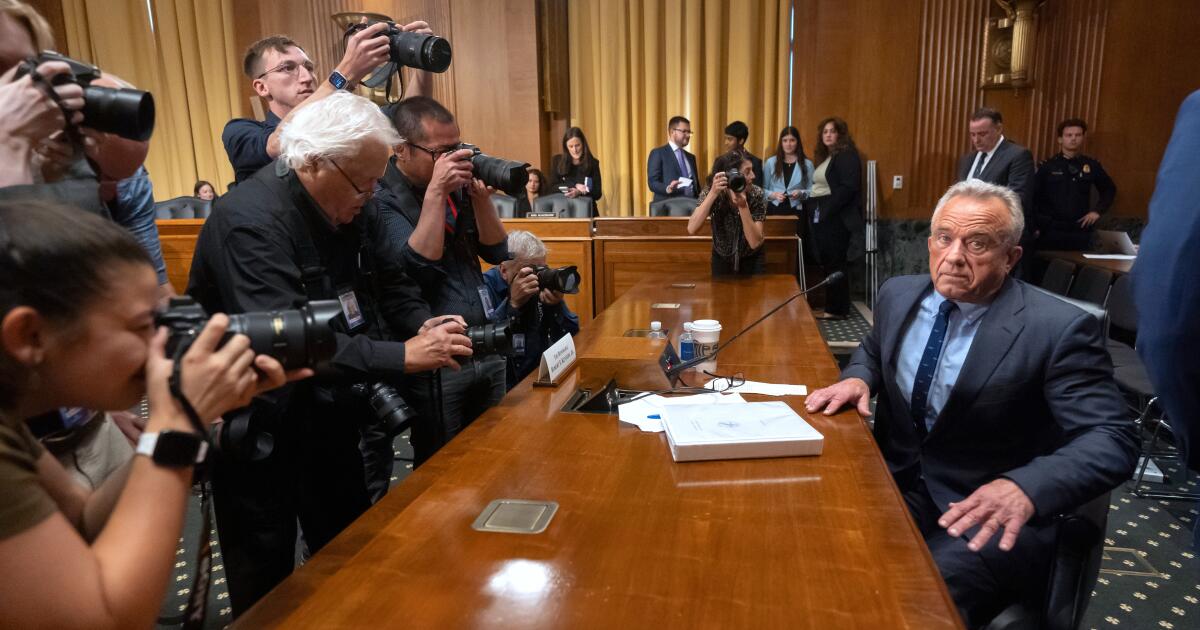In recent developments, Robert F. Kennedy Jr., the Secretary of Health and Human Services, has come under intense scrutiny from his own family members due to concerns regarding his approach to public health, particularly his anti-vaccine stance. This report delves into the family’s strong opposition, the implications of his actions, and the broader context of vaccine policy and public health.
Family Pushback Against RFK Jr.
Following a contentious congressional hearing where RFK Jr. defended his leadership decisions, some members of the Kennedy family have openly called for him to resign. Notably, his sister, Kerry Kennedy, and his nephew, Joseph P. Kennedy III, have expressed their disapproval in strong statements. Joseph P. Kennedy III remarked, “Robert F. Kennedy Jr. is a threat to the health and wellbeing of every American,” highlighting the perceived risks of his tenure as Health Secretary. Similarly, Kerry Kennedy criticized his approach, underscoring that “medical decisions belong in the hands of trained and licensed professionals, not incompetent and misguided leadership.”
This family discord isn’t new; RFK Jr.’s anti-vaccine views have historically faced opposition from relatives, some of whom previously wrote to senators urging them to block his nomination. Their calls for resignation reflect a significant concern about the direction of health policy under RFK Jr.’s guidance.
Impacts of RFK Jr.’s Leadership
Since taking office, RFK Jr. has made sweeping changes within the federal health agencies. His actions, which include altering COVID-19 vaccine recommendations and initiating the dismissal of high-level officials at the CDC, have caused unrest within medical and public health communities. His leadership style and policy alterations have been described as tumultuous, leading to significant layoffs and a reshaping of vaccine guidelines—decisions that contradict earlier assurances made during his confirmation hearings.
Medical groups and health officials, particularly in predominantly Democratic states, have expressed alarm over these changes, prompting them to devise their own vaccine recommendations in contradiction to those now proposed by RFK Jr.’s department. This divergence could lead to a fragmented public health approach that might confuse or mislead the public regarding essential health information.
The Anti-Vaccine Movement
RFK Jr. has long been a contentious figure due to his prominent role in the anti-vaccine movement. His views, once largely confined to grassroots activism, are now amplified through his position at the highest levels of the public health system. This elevation has changed the dialogue around vaccination policies, bringing fringe theories closer to mainstream public considerations.
As COVID-19 continues to be a global concern, the ramifications of his leadership on vaccine policy cannot be understated. Vaccination has been a critical component of the public health response against the pandemic; any significant shifts in guidelines can have widespread consequences on community health and the public’s trust in vaccines. Concerns raised by his family indicate that many believe his views could undermine decades of public health achievements related to vaccine efficacy and safety.
Bipartisan Concerns and Congressional Response
The congressional hearing that triggered this latest family split showcased a bipartisan effort to hold RFK Jr. accountable for his controversial policies. Lawmakers from both sides of the aisle questioned him regarding the potential public health threats posed by his leadership. Such bipartisan concern is rare and signifies the gravity of the implications surrounding his approach to health policy and information dissemination.
RFK Jr.’s tenure has prompted discussions about the intersection of politics, public health, and personal beliefs, raising questions about the ethical responsibilities of a government official when it comes to scientific consensus and public health advocacy.
Potential Consequences for American Health
The calls for RFK Jr.’s resignation from family members reflect broader societal anxieties about the future of health policy in the U.S. If his leadership continues to foster divisive and scientifically unverified ideologies, it may pose real threats to public health. Misinformation surrounding vaccines already presents a significant challenge; any further erosion of trust in public health agencies could have dire consequences as the nation continues to navigate the complexities of health crises, including the ongoing ramifications of COVID-19.
Conclusion
The current rift within the Kennedy family over RFK Jr.’s role as Health Secretary highlights a significant conflict not just between personal relationships but also between public health ideologies and family legacy. With growing calls for his resignation from family members who underscore the potential harm of his leadership to American health, we are left to grapple with fundamental questions about the intersection of personal beliefs, political power, and scientific responsibility. The ongoing developments surrounding this situation will undoubtedly shape the conversation on health policy and public trust in the years to come. As the dialogue progresses, it serves as a reminder of the importance of scientific evidence in shaping health policy and the critical need for clear communication in public health messaging.









